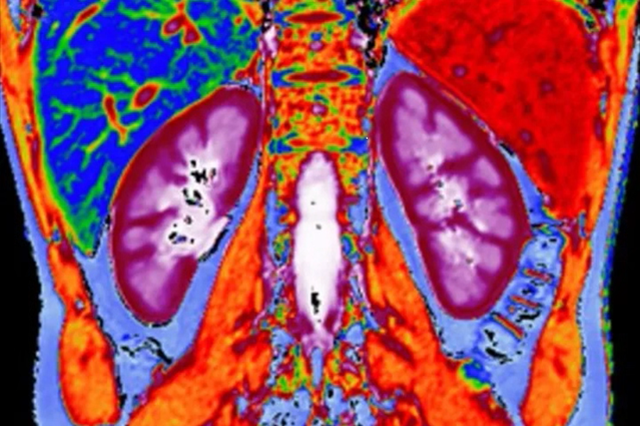26 Apr. 2021. A study of individuals with lingering symptoms from Covid-19 shows they experience impaired organ functions months after the initial infections. Findings of the study of post Covid-19 syndrome, or long Covid, patients, by researchers from the company Perspectum and universities in the U.K., appear in the 30 March 2021 issue of the journal BMJ Open.
Post Covid-19 syndrome is a condition where people who survive an infection from the SARS-CoV-2 virus report persistent symptoms, even after the initial infection subsides. The authors cite data showing some 10 percent of Covid-19 patients experience their symptoms continuing at least 12 weeks after initial infection, but post Covid-19 syndrome remains a little understood condition. Moreover, say the authors, post Covid-19 syndrome affects many individuals usually considered at lower risk of Covid-19 disease, younger people and those without other disorders such diabetes or heart disease.
Perspectum, in Oxford, U.K., is a spin-off enterprise from University of Oxford offering magnetic resonance imaging or MRI diagnostics analyzed with artificial intelligence algorithms to better measure and quantify results of MRI scans. Much of their work focuses on quantitative MRI scans for diagnosing disorders, including cancer, in the liver, gall bladder, and pancreas. In April 2020, the company began its Coverscan study, a clinical trial tracking patients with post Covid-19 syndrome using Perspectum’s quantitative MRI technology, as well as blood tests and questionnaires.
Majority with post Covid-19 syndrome
The Coverscan trial recruited 507 participants at two sites in the U.K.; enrollment is now closed. Participants were previously infected with the SARS-CoV-2 virus, but discharged from hospital and living at home without supplemental oxygen, and without respiratory symptoms for at least seven days. Participants received three MRI scans and three blood tests over 12 months, as well as completed online questionnaires about their symptoms.
Results from 201 participants, after a median of 141 days following infection, show 60 percent report severe post Covid-19 syndrome, with 42 percent indicating 10 or more continuing symptoms. Those symptoms include fatigue, reported by nearly all (98%) of individuals, followed by muscle aches, breathlessness, and headaches by eight to nine in 10 participants. MRI scans showed at least mild impairments in the pancreas (40%), liver (28%), heart (26%), lungs (11%), kidneys (4%), and spleen (4%). Seven in 10 participants (70%) reported one organ impaired, and about three in 10 (29%) indicated problems with multiple organs.
Participants were predominately female (77%) and white (88%), with an average age of 45 and one-third (32%) in the health care field. Nonetheless, individuals in the study are normally considered at lower risk of Covid-19 disease, with two in 10 (20%) obese, and less than one in 10 shown with hypertension, type 2 diabetes, or heart disease. In addition, only about two in 10 (19%) were initially hospitalized with Covid-19 infections.
“Early in the pandemic,” says the paper’s senior author Amitava Banerjee, clinical data science professor at University College London in a Perspectum statement, “research and clinical practice focused on pulmonary effects of Covid-19, but as we scanned patients using Perspectum’s quantitative MRI, we found evidence of multi-organ impairment.” Banerjee adds, “Because our research demonstrated physiological effects in a majority of patients, we believe major organ systems must be assessed in all patients recovering from Covid-19, to help define long Covid, determine its after-effects, and develop multidisciplinary care pathways.”
More from Science & Enterprise:
- Trials Adding Covid-19 Hospital, Out-Patient Therapies
- Challenge Trial Testing Covid-19 Reinfection
- Antibody Cocktail Prevents Covid-19 Disease Symptoms
- Microbiome Therapy Shown to Cut Covid-19 Health Needs
- Mental Health Requests Rise During Pandemic
* * *


 RSS - Posts
RSS - Posts
You must be logged in to post a comment.